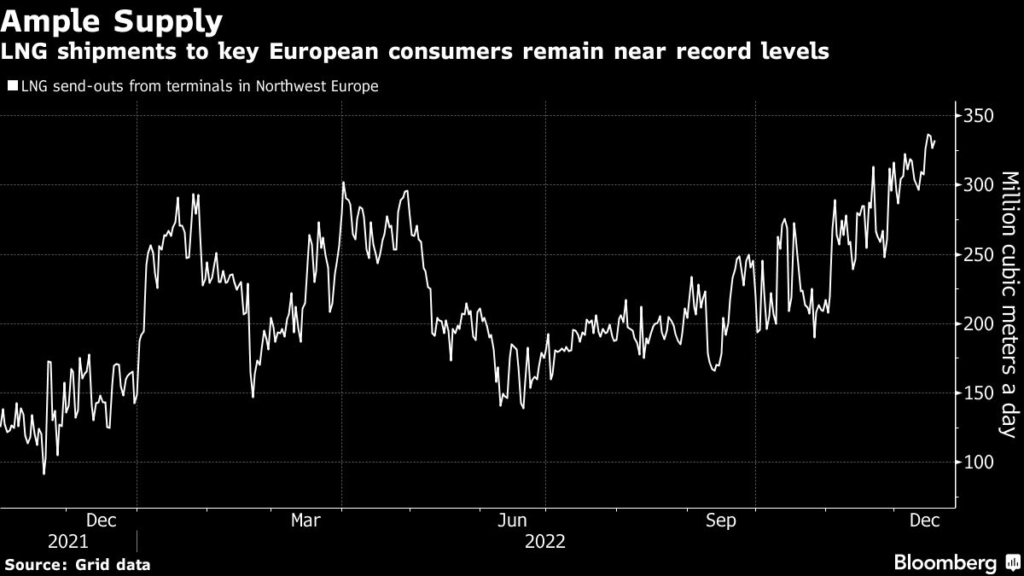European natural gas fell to the lowest level since June 14 as near-record LNG imports and fuller-than-normal inventories further ease supply concerns.
(Bloomberg) — European natural gas fell to the lowest level since June 14 as near-record LNG imports and fuller-than-normal inventories further ease supply concerns.
Benchmark futures settled 7.5% lower, falling below €100 for the first time in more than a month. Temperatures in much of the continent remain mild amid an influx of liquefied natural gas, which is helping to push prices lower. Increased wind generation is also keeping a lid on gas use.
“With the cold snap over — and mild and windy weather forecast for the coming fortnight, as well as routine lower industrial demand over Christmas — there are a lot of bearish drivers in play,” said Tom Marzec-Manser, head of gas analytics at ICIS in London.
Temperatures in parts of Europe are expected to retreat closer to seasonal norms next week, but chances for a mild January seem to be increasing, analysts at trading firm Energi Danmark A/S said in a note.
Dutch front-month gas contract, Europe’s benchmark, settled at €97.75 per megawatt-hour. The UK equivalent fell 7.9%. Year-ahead German power prices fell 7%, also to the lowest level since June.
European gas storage is about 83% full, above the five-year seasonal average, data from Gas Infrastructure Europe show. Supplies from Russia sent through Ukraine were stable on Wednesday, with Gazprom PJSC using alternative links to ship the fuel after one of its local pipelines was damaged this week by a fire.
EU Price Cap
There are concerns among some industry watchers that a price cap, planned by the European Union for next year, may discourage suppliers if gas gets more expensive elsewhere, especially in Asia. There’s no impact so far on LNG deliveries to Europe, but it will be “closely monitored if the downward trend in European gas prices continues,” according to EnergyScan, the analysis platform of Engie SA.
The EU’s executive arm has said the new price tool won’t be triggered if prices are similarly high in other markets. The “mechanism is flexible enough to ensure that the European market will remain attractive for traders,” Czech Industry Minister Jozef Sikela told Bloomberg TV on Wednesday.
Given the caveats built in, the EU’s new policy to limit prices is unlikely to be activated next year at all, analysts at Capital Economics said in a note. “It seems the only thing countries agreed on was that a cap was indeed needed to show unity,” they wrote.
–With assistance from Anna Shiryaevskaya.
More stories like this are available on bloomberg.com
©2022 Bloomberg L.P.











